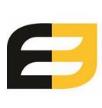Media statement: Education review reflects serious challenges amidst limited progress
10 June 2019
As the Department of Basic Education reflects on the progress of the education sector in the last 25 years, education stakeholders must not lose sight of the on-going challenges yet to be overcome
In Pretoria today, the Department of Basic Education (“DBE”) presented some of the preliminary findings of its “25 Year Review” of the basic education sector at a consultative workshop for civil society and education stakeholders.
While noting the various achievements of the last 25 years, the DBE also took stock of the critical challenges which continue to compromise consistent and adequate progress in the sector.
For instance, whilst reporting on the various improvements made in school infrastructure and sanitation, the DBE acknowledged, amongst other things, the need to strengthen the implementation of the Minimum Uniform Norms and Standards for Public School Infrastructure (“Infrastructure Norms and Standards”), in response to the judgment handed down by the Bhisho High Court in 2018, and to make provincial implementation plans public.
Similarly, in the context of the provision of Grade R, the DBE noted the expansion of enrolments from 2001 to 2017, but cautioned that the quality of provision remains a challenge and that impact evaluations conducted in respect of Grade R revealed the effects of attending Grade R to be “quite small” and “differentiated across the system”, with the strongest effects being observed in wealthier schools and stronger provinces.
These and other challenges and opportunities were also identified by the Equal Education Law Centre (“EELC”) in a recently published report on the state of education in South Africa for the period 2014 – 2019. The report offers additional, and in some cases, alternative critical information regarding the nature and extent of the progress made. Significantly, it also identifies regressive funding trends and persistent system failures, such as inadequate data systems, the inability to effectively coordinate stakeholders, and severe legislative and policy gaps and implementation barriers, which cut across the entire education system, and impede real progress.
Regressive funding trends include shrinking education budgets, chronic underspending, the consistent downward revision of failed targets, and the decline of per learner funding, which, the EELC’s report notes, “impacts the quality of education, reversing all gains made in education, and depriving learners of essential aspects of the right to basic education”.
These regressive trends and system failures manifest in, amongst others, the implementation of school infrastructure delivery, ECD services, learner transport provisioning and continued exclusionary practices in schools.
The EELC’s report was presented to education stakeholders in a facilitated dialogue last month in order to consider the findings of the report and to coordinate strategies to disrupt and reverse regressive trends and system failures which have characterised the period under review. Interestingly, some of the critical challenges identified at the EELC’s dialogue mirrored those raised by education stakeholders at the DBE’s 25-Year Review today, indicating the pervasiveness of these challenges.
The time has come, as a new administration takes control, to hold government to the highest performance standards. We cannot wait for a further 25 years for government to fulfill its obligations, or to simply reflect once more at the 50-year mark, on the same failures. Government and other stakeholders must therefore coordinate and execute creative strategies to prevent this from happening.
Issued by the Equal Education Law Centre, 10 June 2019

